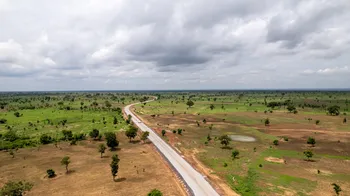
The project is designed to enhance the resilience of the road transport network, which is crucial for facilitating trade and improving access to essential services for local communities. It is expected to benefit approximately 194,000 people living in the region by providing safer and more reliable transportation options.
Key Objectives
- Improve Connectivity: The project aims to reduce travel times significantly, making it easier for communities in western Honduras to access the Atlantic Coast.
- Enhance Resilience: By upgrading existing infrastructure and constructing new roads, the project will help mitigate the impacts of climate change on transportation networks.
- Support Economic Growth: Improved road infrastructure is expected to facilitate trade and boost local economies by connecting rural areas with urban centers.
Specific Features of the Project
The project will focus on several key components:
- Construction of New Roads: Approximately 40 kilometers of new roads will be constructed to provide alternative routes that bypass congested areas.
- Upgrading Existing Infrastructure: Existing roads will be rehabilitated to ensure they meet safety and durability standards.
- Sustainability Measures: The project will incorporate climate-resilient designs and materials to withstand extreme weather events.
- Capacity Building: The initiative includes training programs aimed at enhancing the skills of local authorities in road management and maintenance.
Alignment with National Goals
This investment aligns with Honduras's Nationally Determined Contributions (NDC) under the Paris Agreement, which emphasizes the importance of sustainable infrastructure in achieving climate goals. The project supports national efforts to reduce greenhouse gas emissions and improve overall environmental resilience.
Broader Economic Context
The announcement comes at a time when Honduras is focusing on revitalizing its economy through infrastructure development. Recent reports indicate that the construction sector is optimistic about growth opportunities in 2024, driven by public investments in road infrastructure and other key areas.
The Central American Bank for Economic Integration (CABEI) recently approved a separate investment of $606.9 million for road improvements across various segments in Honduras, further underscoring the commitment to enhancing national connectivity and competitiveness.
The World Bank's investment in Honduras represents a critical step towards building a more resilient and connected nation. By improving road infrastructure, the project not only aims to enhance economic opportunities but also addresses pressing challenges related to climate change and sustainable development.







